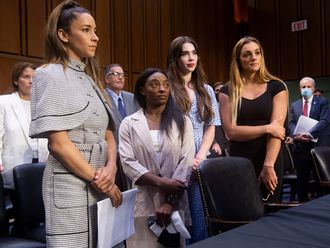Washington: For the first time in four decades, the federal government is poised to add a new ethnic category to the US census form, adding a box for people of Middle Eastern and North African descent.
Details are still being negotiated, but as currently envisioned, people would be able to check the new box in addition to race identifiers such as “white” or “black.” Within the new category, they would also be able to specify national origins, such as Saudi Arabian or Israeli, and ethnic affiliations such as Berber or Kurdish. The new form would go to Congress for final approval in 2018 in time for the 2020 Census.
The move comes after more than 30 years of lobbying, but also at a time of rising Islamophobia and calls by Republican presidential nominee Donald Trump to ban people from Muslim lands. Some are questioning whether the new designation could lead to profiling or otherwise put them in danger.
The proposed addition would create a race and ethnicity category called Mena for people with roots in the Middle East and North Africa. It has been championed by organisations representing Arab Americans and others with roots in the geographical swath from Iran to Morocco, who complain of being ignored in the decennial count.
The region comprises a mix of ethnic and racial categories, including people who identify as white or black, Arab or Aryan.
Sanaa Mehdi, 30, is originally from Morocco, but when filling out the census form in the past, the District of Columbia resident has checked off “white.” “That was the closest it came,” she said, though she would have liked a more specific option. “I think it’s a good thing to be able to choose where you’re from exactly.”
But to many, counting people with roots in majority-Muslim countries feels like a double-edged sword.
“If this helps provide some hard data, it’s useful,” said Ebrahim Hooper, spokesman for the Council on American-Islamic Relations. “But unfortunately in today’s environment, we have to have concerns about the possible misuse of this data. We’ve had too many problems in the post-9/11 era when the American government singles out Arab Americans or Muslim Americans for profiling.”
The Census Bureau has been testing different versions of a new form to see how likely respondents are to check the Mena category. A public comment period will end October 31, and a final decision on the form will be made by the Office of Management and Budget.
“This is a big deal,” said William Frey, a demographer at the Brookings Institution. “The last time they did anything like this was with Hispanics before the 1980 Census.”
Historically, many people from the Middle East and North Africa have put down “white” when there has been no other option, a practice that dates back a century, when people from the region, concerned about legislation to restrict immigration by Asians and deny them US citizenship, pushed to be counted as white instead of Asian.
In modern times, however, the lack of a distinct classification has held them back, advocates say, noting that census data is used in deciding how congressional districts are drawn and how to allocate funding for federal aid programs.
“To be a community that’s invisible has been a real problem for us,” said Maya Berry, executive director of the Arab American Institute. The institute estimates there are around 3.7 million Arab Americans in the United States with origins in almost two dozen countries, but it does not know exactly how many or where they live.
“Whether it’s a local school district trying to make decisions about English-as-a-second-language classes, or Voting Rights Act protections, or health research... we’d love to be able to say, ‘This estimate is based on this data’,” Berry said. “It means we could have our category the same way ‘Hispanic’ does... People will be able to finally see themselves in the census.”
Advocates for Iranian Americans, whose numbers ballooned after the 1979 Islamic revolution, have similarly relied on estimates to count their constituents, with numbers ranging from 300,000 to well over a million.
“Not having an accurate sense of how many Iranian Americans are in the country really diminishes the sense that we are a group that should be listened to, that exists, that deserves respect,” said Jamal Abdi, policy director for the National Iranian American Council.
An effort to persuade people to write in “Iranian” in advance of the 2010 Census “was nuts; the number ended up being lower than it had been in 2000,” Abdi said. “I think it had something to do with post-9/11 fears of that data being used against people.”
Abdi said similar concerns are arising now. Legally, people are protected from being identified through the census. But “when you have a candidate who’s talking about violating this law, that gives people pause,” Abdi said. “That’s the real pushback that we get from the community; that people are worried about how this data will be used.”
Hooper cited the Department of Homeland Security’s “special registration” programme for men from Muslim countries in 2002 and 2003, and the New York Police Department “gathering data to spy on American Muslims in an entire region, what they called the ‘demographics unit.’ So demographics can be a powerful tool when wielded by any government... What would Donald Trump do with this kind of data if he was elected?”
The identity of a person filling out a census form is anonymous, but the Census Bureau came under fire in 2004 after it was revealed to have shared data on where Arab Americans lived by city and Zip code with DHS.
A law passed in the wake of the terrorist attack in San Bernardino, California, in 2015, which restricts people born in or holding dual citizenship with certain Middle Eastern nations from the United States’ visa waiver programme, has added to the fears. For example, a British citizen born in Syria or a French Iranian dual national must now apply for a visa to travel here.
“Historically, the US is not supposed to discriminate based on heritage, but they have this new law that does just that,” Abdi said.
Berry said she understood the concerns but noted that “those who have wanted to surveil us... have done so effectively without a census category.”
Pouriya Samari, 35, a DC resident from Iran, agreed. “Don’t you think they already know where we live?” he said. “Any information they want, they already have. And why should I be afraid? One, I know I have the right to be here; and two, they don’t take names.”
The Census Bureau’s working Mena classification includes people with origins in Algeria, Bahrain, Egypt, Iraq, Iran, Israel, Jordan, Kuwait, Lebanon, Libya, Morocco, Oman, Palestine, Qatar, Saudi Arabia, Syria, Tunisia, the UAE or Yemen, as well as those who identify as Amazigh or Berber, Arab, Assyrian, Bedouin, Chaldean, Copt, Druze, Kurdish and Syriac.
Groups that could be added in the future include Turks, Sudanese, Somalis, Afghans, Armenians, Azerbaijanis, Cypriots, Djiboutians, Georgians, Mauritanians, South Sudanese, and Turkish Cypriots, census officials said.
Maz Jobrani, an Iranian American actor and comedian who made a video trying to persuade people to write in “Iranian” for the 2010 Census, said while he supports the new category, other Iranians might perceive it as a slight.
“Some Iranians are very Iranocentric; they really want it to be known that they are separate from Arabs, and when you’re talking about race, Iranians are quick to remind you that Iranians are white,” he said. “But I think it’s good to have some kind of minority status, and if that means that we’ve got to get together with others from the same region, I think there’s some good that can come of that.”
If a Mena box does appear on the next census, it may take time for communities to embrace it, Jobrani added.
“When you first come here to America, you are kind of a third-class citizen. People have a tendency to put their heads down and not make any noise and just get through their daily lives,” he said. “But then you have their children who grow up here and say, ‘How can I sit back and complain about everything being run by old white men if I don’t get involved?’ It’s realising that your voice counts.”












